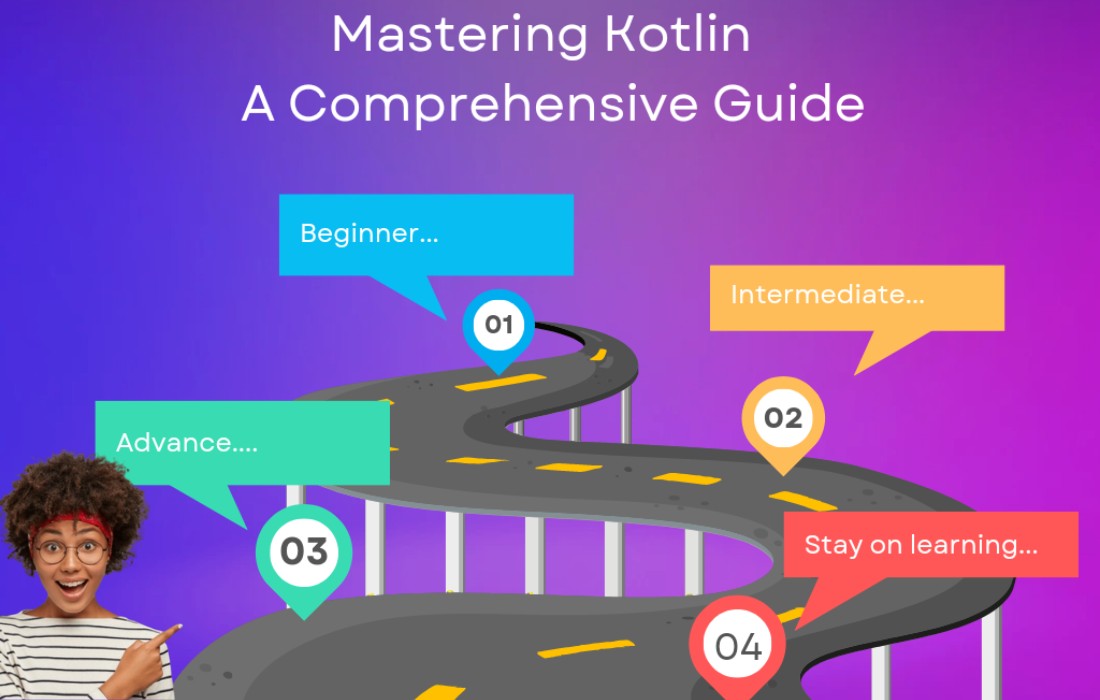Introduction
In Kotlin, functions play a crucial role in structuring your code. From basic ones that perform simple tasks to more complex ones that handle default values and named parameters, Kotlin’s flexibility allows for elegant and concise function declarations. In this blog, we’ll explore the various aspects of Kotlin functions, from the basics to advanced concepts, helping you harness the full potential of Kotlin’s functional capabilities.
Functions with Parameters
At the core of many programming tasks is the need for functions that can accept parameters. Kotlin, like many other programming languages, supports functions with parameters. Here’s a simple example:
In this example, the lessTrivial function takes two parameters, left and right, both of type Int, and prints their sum. The order of parameters matters when calling the function, so we need to provide values for them in the same order as they appear in the function declaration.
Functions with Return Types
Functions can also return values. This is essential when you want to calculate something and use the result elsewhere in your program. In Kotlin, you declare the return type after the parameter list, separated by a colon.
Here, the simpleReturn function takes two Int parameters, adds them together, and returns the result. The function’s return type is declared as Int.
If you want to use the returned value, you can assign it to a variable, as shown below:
Local Variables
Variables declared inside a function are local to that function. These variables exist only during the execution of the function and are inaccessible once the function completes. Here’s an example where we use a local variable to store the result of a calculation:
In the actLocally function, the result variable is declared inside the function and used to store the sum of left and right. The result is then returned.
Expression Bodies
Kotlin offers a concise syntax called expression bodies, which simplifies functions where the body consists of a single expression. Instead of using braces {} and the return keyword, you can use the = sign:
In this example, the entire function body is a single expression, and the return type is inferred by the Kotlin compiler.
Expression Bodies and Types
In the previous example, Kotlin inferred the return type of the function. However, you can override the inferred return type if necessary by specifying it explicitly after the colon :.
In this case, the function is declared to return a Number, even though the result of left + right is an Int.
Default Parameter Values
Another useful feature in Kotlin is default parameter values. This allows you to define a default value for a parameter, making it optional when calling the function. If a value isn’t provided, Kotlin uses the default value.
In this case, if no value is provided for amount, it defaults to 1. This simplifies code when many function calls need to use the same value for certain parameters.
Named Parameters
When functions have multiple parameters, you might want to use named parameters for clarity, especially when many parameters have default values. With named parameters, you specify the name of the parameter when calling the function:
In this example, the first call uses a positional parameter for base and a named parameter for amount. The second call explicitly names both parameters, while the third call mixes positional and named parameters.
Benefits of Named Parameters
Named parameters make the code easier to understand, especially for functions with many parameters. Consider a more complex function like iCanHazCookie:
Without named parameters, you’d need to pass null for parameters you don’t care about. With named parameters, you can call the function like this:
This makes the function call much more readable and easier to understand.
Conclusion
Kotlin functions are powerful and flexible, allowing for parameterized functions, return values, concise expressions, default parameters, and named parameters. By leveraging these features, you can write cleaner, more readable, and efficient code. Whether you’re working on simple tasks or complex systems, understanding these function concepts will significantly enhance your ability to write Kotlin code.
By mastering Kotlin functions, you’ll be well-equipped to handle a wide variety of programming challenges and make your code more maintainable and expressive.












